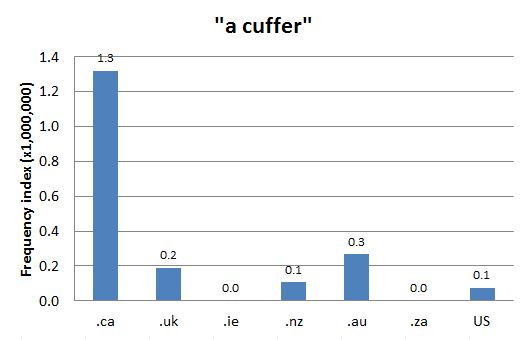DCHP-2
cuffer DCHP-2 (October 2016)
1 n. — Newfoundland, dated
a tale or story.
Type: 2. Preservation — Cuffer is a British dialectal term meaning a 'yarn' or 'tall tale' (EDD, s.v. "cuff" 4(2)) that likely developed from the phrase to cuff over 'to discuss or gossip'. Though the term also appears occasionally in American English and Australian English (see W-3, s.v. "cuffer"(1), & AND, s.v. "cuffer"), it bears particular social and cultural significance in Newfoundland, a loquacious place. There is, moreover, an important semantic difference. Whereas in the other countries the term explicitly signifies a false tale, Faris (1966: 244) asserts that a cuffer can be and is used in Newfoundland as a device to exaggerate an already well-known story for the purpose of humour or the revival of a dying conversation. Joseph 'Joey' Smallwood, the first premier of Newfoundland, was known for his use of the art of the cuffer as a political tool in the rural parts of the province, where the technique has been most popular (Paine 1985: 60).
See also DNE, s.v. "cuffer" (1).2 n. — Newfoundland, dated, Social customs
a gathering for the purpose of sharing or exchanging tales or stories.
Type: 3. Semantic Change — Though it seems that cuffer in this sense was originally restricted to fishermen (see the 1937 quotation), it has expanded in Newfoundland to mean a gathering for a chat by any group. Clarke (2010b: 119) notes that there is a tendency in Newfoundland English for words "originally associated with a nautical or fishery context [to take] on a more general meaning". Commonly used in the phrase have a cuffer (see the 1994 and 2003 quotations), the term typically has positive or friendly connotations. As part of a phrase, cuffer appears most frequently in Canada (see Chart 1).
See also DNE, s.v. "cuffer" (2).References:
Images:
Chart 1: Internet Domain Search, 3 Jun. 2014
